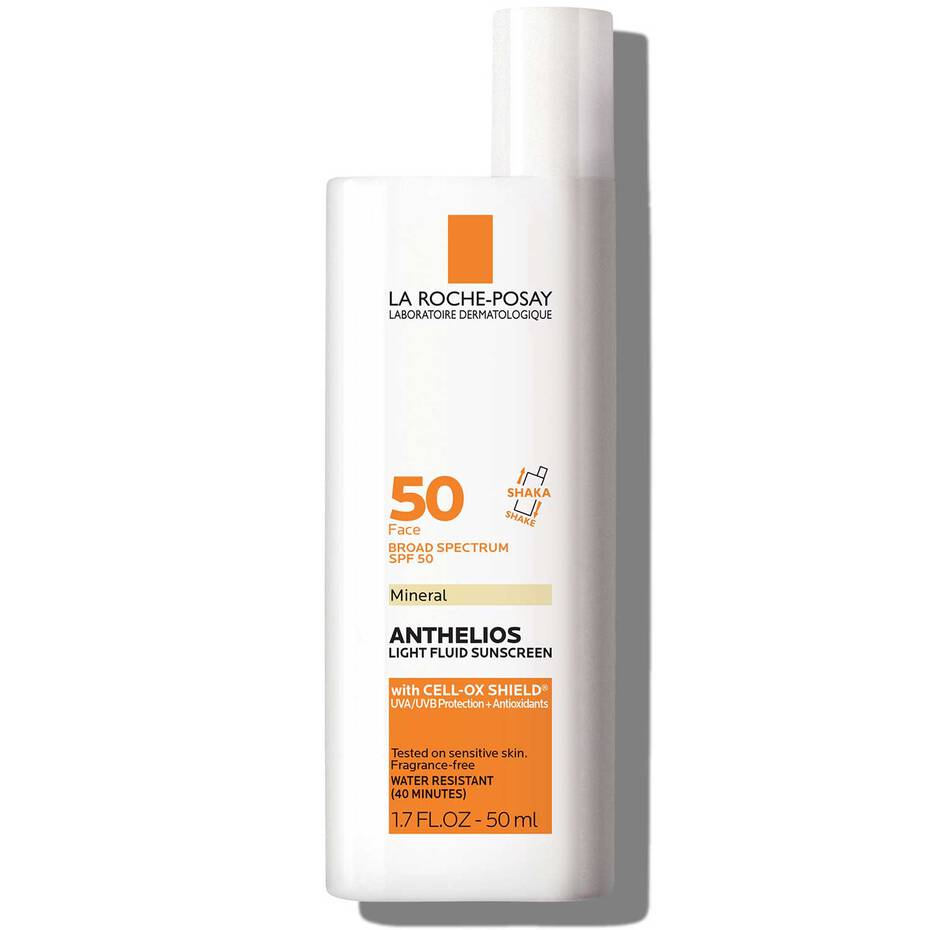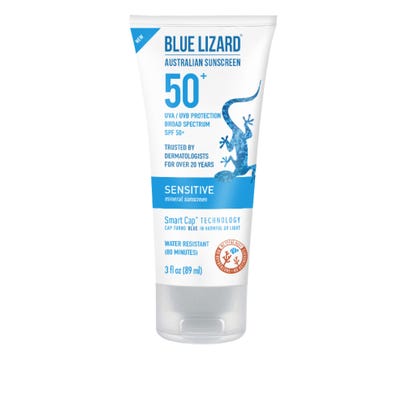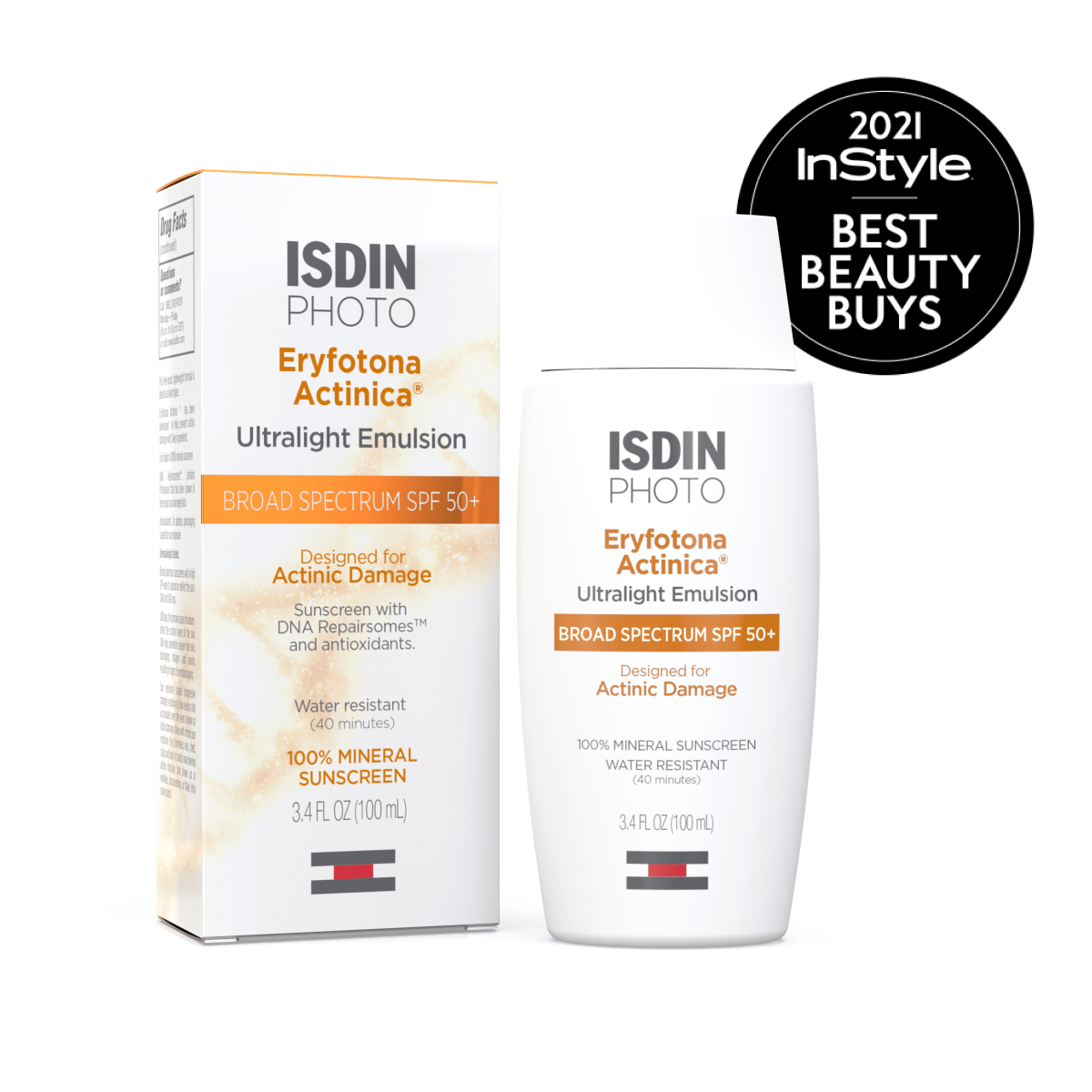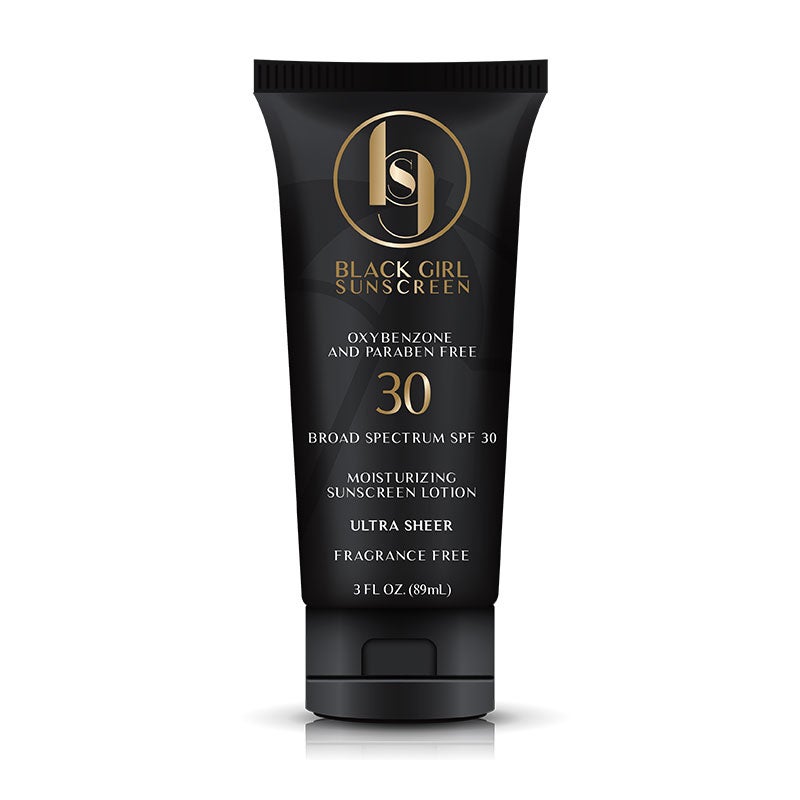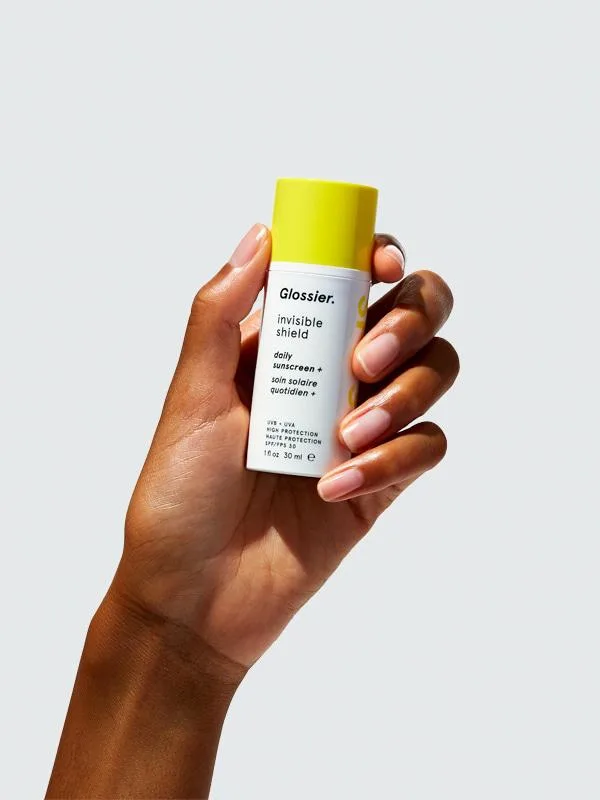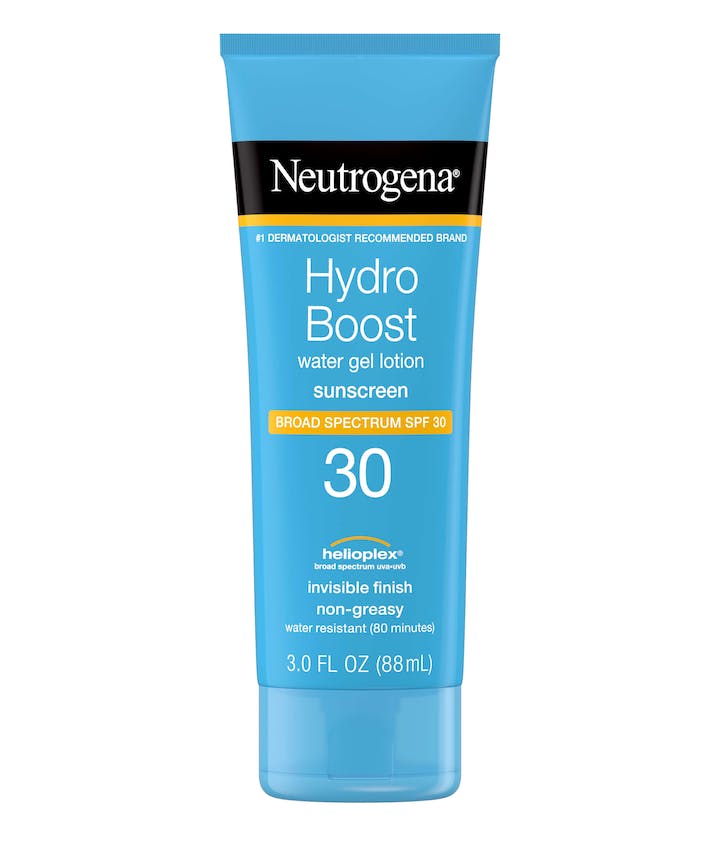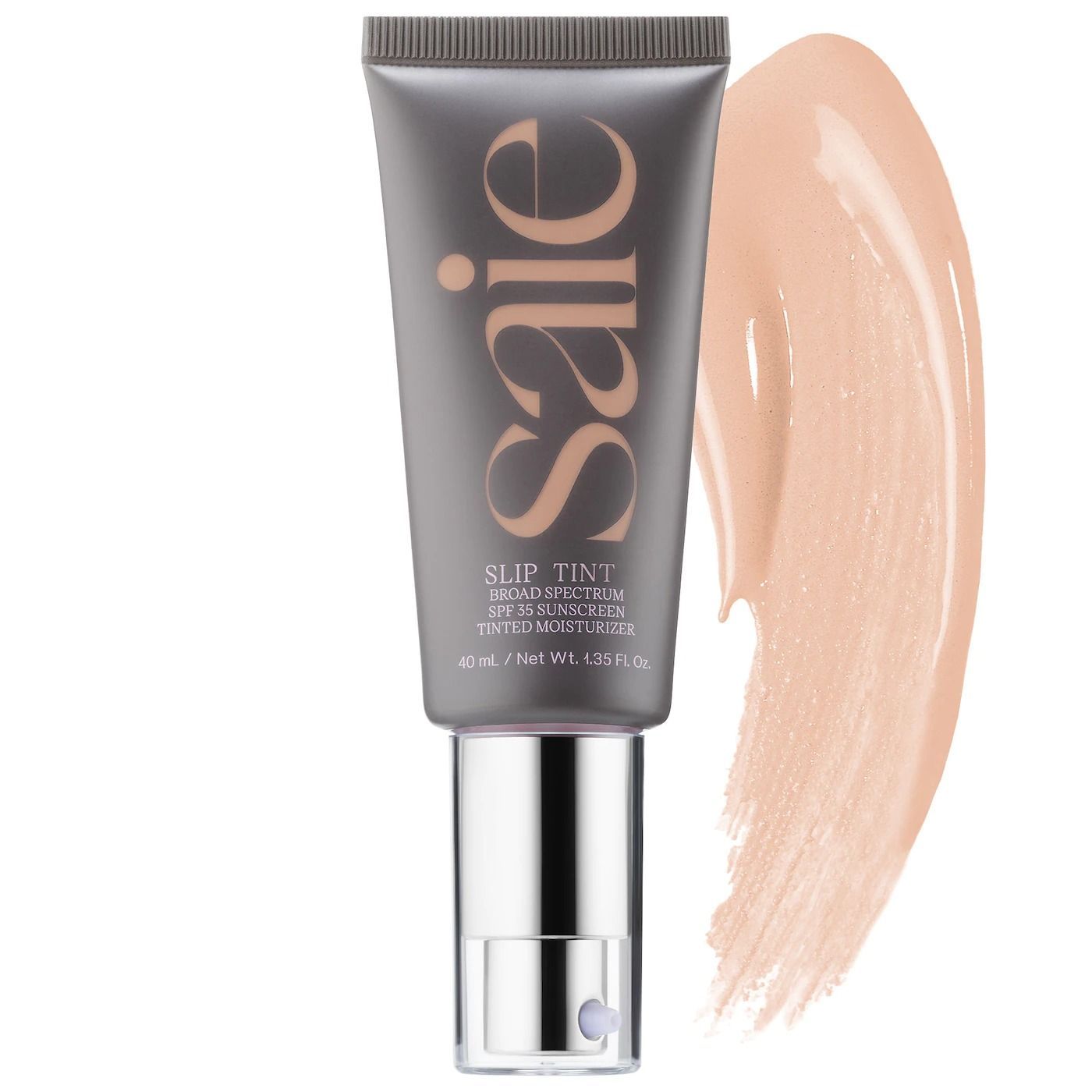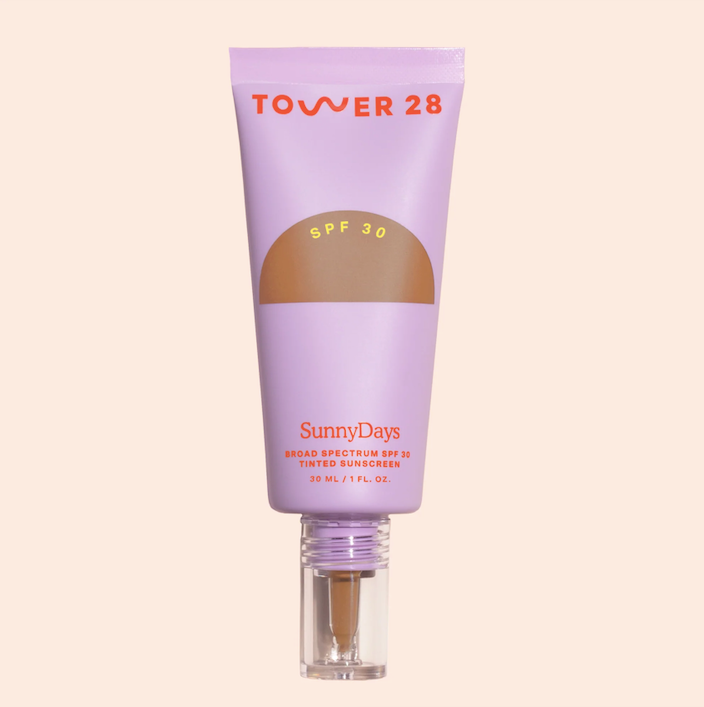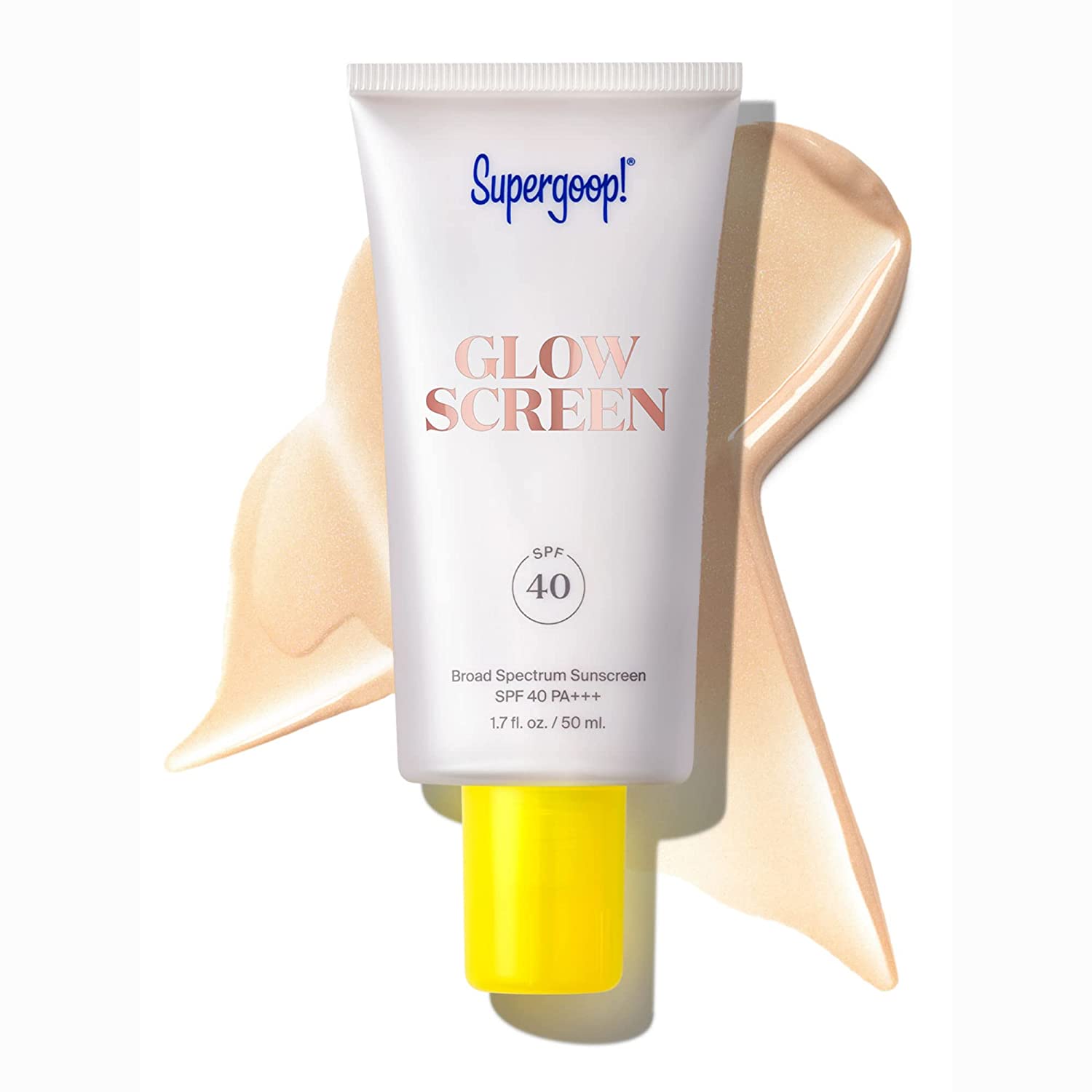Does My SPF Skin Tint Count As Sunscreen?
Photo: Christian Vierig/Getty Images.
I like the way my tinted sunscreen makes my skin look, but beyond that, I love that it’s protecting me from UV damage, wrinkles, and potential skin cancer. However, if I’m honest, the fact that it makes my skin look dewy and reflective but also bare yet still better than it did when I woke up is the real reason SPF has become an everyday essential all year round. (Yes, you still need to wear sunscreen into fall.)
But the other morning, I was applying my Supergoop! Glowscreen — squeezing it on the back of my hand and mixing it with my skin tint and rubbing it all onto my face — and I thought, is this really as protective as the SPF 40 on the label, or am I somehow cheating? Because this feels more like makeup.
AdvertisementADVERTISEMENT
If you've been shopping for beauty products lately, you are well aware that skin care, sunscreen, and makeup have been mixed together to create many buzzy products. There are all of these new loaded sunscreens that are marketed as doing a bunch of other things, from brightening to illuminating to evening out skin tone. The Glowscreen for example, has ethically sourced mica that gives my skin that reflective highlight (feels like makeup and sunscreen). Ilia has a new tinted vitamin C serum with SPF 40 — do I apply that as a serum or a sunscreen? Tower 28’s Tinted SPF looks like foundation, feels like a moisturizer, and it’s also an effective sunscreen(?)
I don’t know if I’m cynical to be suspicious, but I asked a trusted dermatologist, Dr. Doris Day, M.D., who practices in New York City to answer my questions about sun protection as it pertains to skin tints. Ahead, she helps me better understand how to think about all of these souped-up tinted sunscreens.
Is tinted sunscreen effective?
Technically, yes. According to Dr. Day, tinted sunscreen is just as protective as its non-tinted counterpart. This surprised me. I thought the tint (like, the makeup part) might somehow dilute the level of protection. But Dr. Day tells me that sunscreen is sunscreen, and the tint is just an addition that does not take away from the efficacy. "It's possible that the brand maybe started at an SPF 50, and when they added the other ingredients, it took it down to a 40." Those other ingredients could be something like mica that gives that glowy, pearlescent tint or a hyaluronic acid for added hydration. But, according to Dr. Day, a simple rule of thumb: "If you have a sunscreen that says it's all these other things, it's still your sunscreen. Those other ingredients are in there to support the sunscreen."
AdvertisementADVERTISEMENT
How much tinted sunscreen do I need to use?
Here's where people (me) might be cheating with tinted sunscreen or sunscreen makeup: you can't be stretching it or sheering it, like you might a foundation. "When you're using something like a tinted moisturizer with an SPF on the label, that's a sunscreen," Dr. Day explains, adding a disclaimer that it should be a mineral formula (zinc oxide) with SFP 30 or higher. "But if you think about how much you put on you face, you might not be putting on enough to be effective as a sunscreen. If you're spreading a pea-sized drop all around your face, that's like taking a fabric and stretching it really thin so that it's not even really hiding anything, like wearing leggings that are thin and you can still see your butt through."
For size context, you want multiple pumps of sunscreen on your face, whether it's tinted or not. "You can think of it like four peas," Dr. Day says, "one on your forehead, one on each cheek, and then one for your chin. Then you need even more for your neck. Remember, you want about a shot-glass amount for the full body. Mineral-based sunscreen is like physical [sun] protection, so the thicker, the better protection."
What if I want sheer coverage?
If you just want to use a teeny-tiny drop of your skin tint or SPF moisturizer — you really sheer it out — that's fine, you just need an additional sunscreen underneath it. "If you're in doubt that you're not using enough tinted sunscreen, a sheer sunscreen is a good base," explains Dr. Day. "I think about it like getting my morning workout done. You can still add onto it, go for a bike ride or something, but you know you have you workout done." Know that you have your sun protection in, and then build on top of it.
AdvertisementADVERTISEMENT
What's a good base sunscreen to have on hand?
"It's important to have a sunscreen that's going to do its job, and that is protecting your skin from sun," says Dr. Day. She recommends Blue Lizard's mineral formula, which she uses herself every day. She also likes La Roche-Posay Pure Mineral, which comes with and without a tint, and ISDIN, which is a great dermatologist brand with a lot of clinical research behind it.
How do I layer sunscreen with sunscreen makeup?
"I start with a sunscreen that doesn't look anything first," Dr. Day says. "You want something that's sheer, so that your natural skin tone can come through. You want to cover your full face. Do it first thing in the morning. Also, the neck is important. Get around the mouth, because the area around your mouth ages like your neck, so you really have to protect it. Now, you can add a SPF tint."
Makeup artist Katie Jane Hughes actually likes to use her tinted sunscreen as a stand-in for makeup. She uses the Supergoop! Glowscreen in the Golden Hour shade as a liquid bronzer around her forehead, and then the original pearlescent tint over the rest of her face as a primer slash illuminator. You can see that the sunscreen does act as a makeup base that also has that built-in sun protection. This a great technique for reapplication as well. Still, in this case, a base layer of sheer sunscreen under the Glowscreen would be best.
AdvertisementADVERTISEMENT
The important thing is that you use a mineral sunscreen base and then layer with sunscreen makeup that's also a mineral formula — so look for titanium dioxide and zinc oxide in both. "The FDA does limit how sunscreen ingredients can be mixed," Dr. Day says. "It's really hard to find data on this, about mixing chemical or absorbed sunscreen with the mineral-based ones, and whether or not that builds up heat or causes other problems. We need more clarification on that. But there are reasons that you don't mix the absorbed with the non-absorbed sunscreens, so I'd caution against that. But mineral-based formulas, can be layered."
Bottom line: SPF makeup and skin-care products are great, and they do protect your skin, but you need to be applying them like sunscreen: thick and all over your face and neck. If not — and be honest — use a non-tinted mineral sunscreen underneath, just to be safe.
What's a good sunscreen formula for darker skin tones?
It's important to talk about sunscreen and skin of color. Traditionally, one of the major downsides to mineral sunscreen, both tinted and non-tinted, is that it turns white or ashy on darker skin tones. It's enough to make you skip sunscreen, but it's still important to prevent skin cancer and sun damage. "With my darker skin patients, what I see over time is that the parts [of the skin] that are sun-exposed are a whole different color than the parts that are not sun exposed, and it's very hard to fix that," explains Dr. Day. "Patients that pigment more easily and use sunscreen, they stay their own natural, unique color, as opposed to having three different skin tones. The sunscreen formulations that are most cosmetically elegant and look good on the skin are usually the sheer options."
AdvertisementADVERTISEMENT
In a recent article where Black Women Share The Sunscreens They Actually Wear Every Day, some of the recommendations of sheer mineral formulas included Black Girl Sunscreen, Glossier Invisible Shield, and Neutrogena Hydro Boost SPF 30.
What are good tinted sunscreen recs?
Dr. Day explains that a lot of her patients prefer a tinted sunscreen, for aesthetic purposes. Finding a tinted mineral sunscreen you like is personal to your skin type. Our Refinery29 team has a few favorites that work across our various skin tones. Supergoop! Glowscreen is a favorite, because it adds a dewiness and almost blurs pores and under-eye darkness, but it's very minimal; when UK Senior Beauty Editor Jacqueline Kilikita started using it, she stopped wearing foundation altogether. Our team also endorses Tower 28's SunnyDays Tinted Sunscreen and Saie's Slip Tint, both of which feel like tinted moisturizer or lightweight foundation and offer a bit more coverage. Of course, there's always the derm-trusted standby: EltaMD.
At Refinery29, we’re here to help you navigate this overwhelming world of stuff. All of our market picks are independently selected and curated by the editorial team. If you buy something we link to on our site, Refinery29 may earn commission.
AdvertisementADVERTISEMENT








